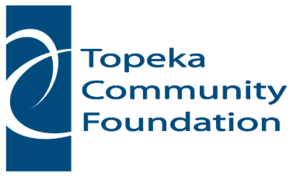Ways to Give
We offer a wide range of gifting options and vehicles that you can use to establish or add to a named charitable fund. Since we are recognized by the Internal Revenue Service as a public charity, donors are provided with the maximum tax benefits allowed by law.
-
Cash, stocks, bonds, or other assets are accepted. Your charitable gift may qualify for tax advantages.
We also accept cryptocurrency.
-
Contributing a personal residence or farm may be your greatest asset and fulfill your charitable giving in perpetuity. Real estate can be used to establish or contribute to an existing fund through the Topeka Community Foundation where you may receive possible tax benefits during your lifetime.
-
Naming the Topeka Community Foundation as a beneficiary of your retirement account is easy and one of the best types of assets to transfer to a charity. Using a tax exempt charity – such as a community foundation – eliminates the burden of paying income tax an heir would be required to pay on disbursements from a decedent’s retirement plan.
-
Designating the Topeka Community Foundation as a full or partial beneficiary of your life insurance policy, your charitable giving interests will be supported in perpetuity. It’s an easy and simple action to give back to your community. Proceeds payable to the community foundation may include possible federal estate tax benefits.
-
By designating a gift or portion of your estate to the Topeka Community Foundation, a fund can be established in your name (or family name). In some cases, you may receive a reduction in federal gift and estate taxes.
-
A charitable trust is used to set up your assets to benefit not only yourself, but your beneficiaries and a charity. You, as a donor, can give ownership to a charity or create a charitable foundation to manage and distribute your charitable giving wishes.
-
Required money to be withdrawn from an employer-sponsored retirement plan can be used towards certain types of charitable giving. Consult with your Financial Advisor or a member of the Community Foundation’s team to review IRS policies.
How it works:
We help you define your charitable goals.
We work with you and your advisors to determine which assets might be best to give.
We work together to determine the best giving method.
We gather specific details about the asset you wish to give.
We will work with you to transfer ownership of the asset and begin the sale process.
Non-Cash Assets We Accept: Artwork, collectibles, crops, farm equipment, life insurance, livestock, publicly traded stock, retirement assets, privately held stock, real estate

